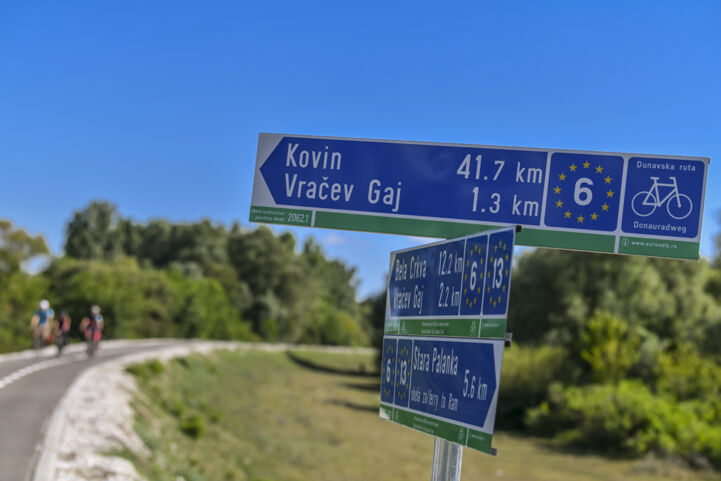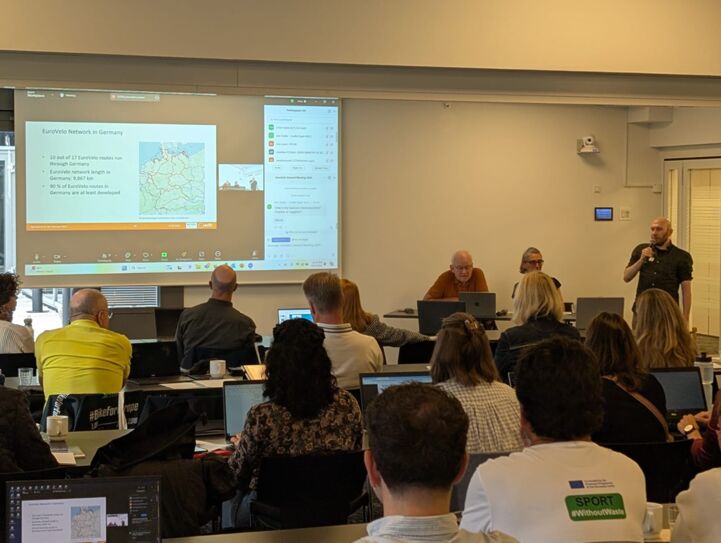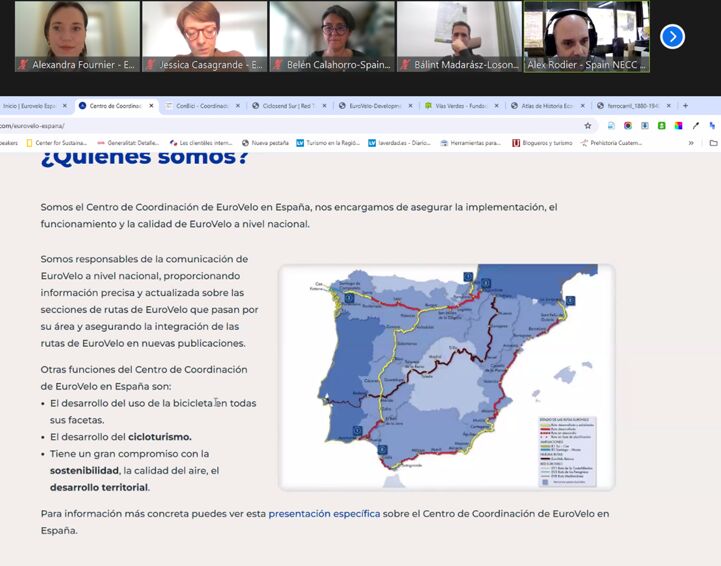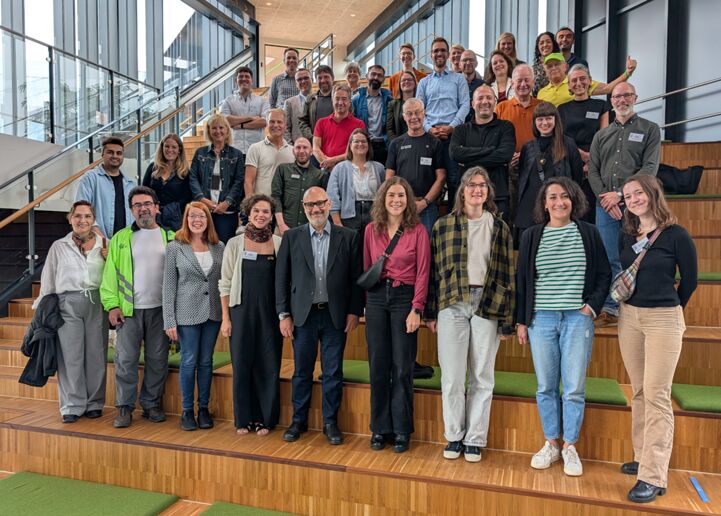National EuroVelo Coordination Centres in 2024: working towards quality and professionalisation
Improving EuroVelo route quality
EuroVelo is still a big work in progress. According to the data provided by NECCs to the EuroVelo Management Team in 2024, 67% of the whole network is developed, 39% of which with EuroVelo signage in 25 countries. Lots of progress has been done with 10,000 km of EuroVelo sections developed since 2021, but more is needed, both in the less advanced countries, and where high levels of developments exist but need to be maintained. Investing in route quality is the key to a pleasant cycling experience, combined with clear communication and services.

, which overlap along the Danube at the border between Serbia and Romania, including new car-free stretches.

to the Calabria Parks cycle route, making the most of an already developed route in the south of Italy.
Field surveys are another hot topic. In Greece, a study of all EuroVelo routes has been carried out and signage is being put in place thanks to the cooperation with the Ministry of Transport. Signing of EuroVelo 13 – Iron Curtain Trail in northern Norway is progressing thanks to the Norwegian Public Road Administration, our NEC, and the signs include the Cultural Route of the Council of Europe logo – probably for the first time ever!
It was a very successful year for the European Certification Standard (ECS), ECF’s methodology to assess the quality of cycle routes – so successful that we are dedicating a full recap article to it. Suffice it to say that ECS has been a key element in obtaining quality data on EuroVelo routes in many countries, checking route quality, mapping issues, and helping plan further investments. The NECCs of many countries used ECS in 2024: Finland, France, Austria, Croatia, Denmark and Slovenia; EuroVelo 15 stakeholders, involving NECCs as direct partners or observers, also supported an ECF-led survey of the route in Germany and Switzerland.
Many of these improvements and assessments could be carried out thanks to national as well as EU funding for cycle route development and related projects – let’s see more about this.
Professionalisation and projects drive EuroVelo development
Projects – both EU-funded and not – are a way to work on the tourist promotion of EuroVelo routes, such as by creating ad hoc EuroVelo and/or cycling tourism national websites, as in the cases of Ireland last year. But these projects are also helpful to improve the governance of EuroVelo at a national and international level: this is the case of current projects such as ICTr-CE and Baltic Biking UPGRADE, which aim at creating a platform for long-term governance of respectively EuroVelo 13 – Iron Curtain Trail and EuroVelo 10 – Baltic Sea Cycle Route. National EuroVelo Coordination Centres often take part in these projects, with numerous benefits for their national recognition and cross-border cooperation.
Various National EuroVelo Coordination Centres benefit from national funds to coordinate cycle routes, including EuroVelo routes, their promotion and marketing at various levels. In 2024, Spain announced a new national initiative to improve the promotion and governance of cycling tourism as a whole – Pedal Spain, with support from EU Recovery funds. The Spanish NECC is involved in this exciting initiative that aims at fully exploiting the potential of Spain. In Belgium, the cooperation between NECC consortium members has been renewed for five more years, with a new key objective: creating a single destination brand for cycling tourism – and EuroVelo will, of course, be part of the picture.

, taking place in Viborg, Denmark on 22 September. In the specific, ADFC is partnering with the Federal Agency for Logistics and Mobility (BALM), while FIAB is creating a consortium with the participation of Italian regions.
Together with this decision, the EuroVelo General Meeting (EVGM) 2024 scored another attendance record, with more than 60 people attending, including representatives of four observer countries. A new open-data license for EuroVelo GPX tracks was approved, and NECCs re-elected three EuroVelo Council members for a second three-year mandate: Marie Sécretant, Frank Hofmann, and Jesper Pørksen, who is confirmed as chairperson. As usual, the EVGM was the occasion to exchange updates about the international and local dimensions of the network.

Last but not least, ECF supports the governance of EuroVelo at a national level by organising knowledge-sharing and networking sessions, such as the NECC online Workshops and by providing assistance and support all throughout. In 2024, four successful workshops were organised on varied topics: monitoring cycling tourism, the European Certification Standard to assess the quality of long-distance cycle routes, Tour Operators’ contribution to cycling tourism and the EuroVelo Development Guide in action.
After all, EuroVelo would only exist on paper without the valued and committed NECCs, which participates in the initiative’s governance through the annual EuroVelo General Meeting, and through their representatives in the strategic EuroVelo Council. Together with the valued NECCs, the EuroVelo Management Team keeps working on the coordination of EuroVelo, towards the goal of establishing an organisation responsible for the initiative in every country crossed by the European cycle route network.

Article by Jessica Casagrande